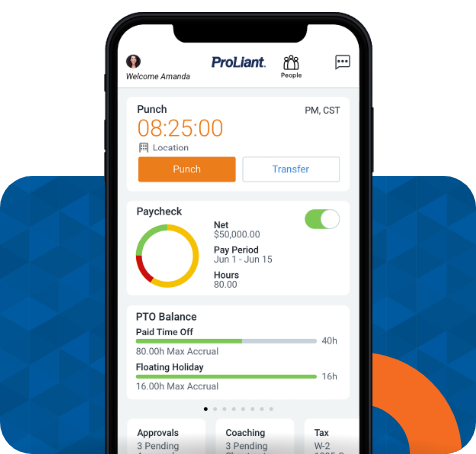Talent management is one of the main focuses of HR professionals, and a good talent management strategy can make a huge difference in how an organization performs. Creating a talent management strategy involves a lot of factors, including individual philosophies and applied tactics.
In this article, we’ll look at research by McKinsey & Company that suggests actions HR teams can take to create an effective strategy. Then we’ll dive into the different talent management philosophies that affect decision-making.
Creating a Talent Management Strategy
According to research by McKinsey & Company, an effective talent management strategy will include three key factors: rapid allocation of talent, HR involvement in employee experience, and strategic HR teams.
Rapid Allocation of Talent
According to research by McKinsey & Company, the practice of rapid allocation makes the most significant impact on outcomes resulting in better organizational performance.
Three actions can speed up talent allocation:
- Effectively assigning talent to a given role based on the skills needed
- Involving leadership and executive teams in talent management (executive teams review talent allocation at least once per quarter)
- Organizing employees into small, cross-functional teams
HR Involvement in the Employee Experience
When HR focuses some of its efforts on making sure employees have a good experience across the employee lifecycle, they are more likely to see improved organizational performance and talent management. Other studies have found that a smooth onboarding experience is a great first step to providing a positive employee experience. From there, performance management and other HCM tools can help as well.
Strategic HR Teams
There needs to be a clear understanding of the organization’s overall strategies and business priorities for an HR team to be strategic. Selecting HR leaders with experience in other functions means that they better understand business priorities and the types of talent required for specific roles. In addition, close collaboration with the chief HR officer, CEO, and CFO positively impacts talent management outcomes.
Four Talent Management Philosophies
In addition to the best practices discovered by McKinsey & Company research, HR teams might consider how they think about talent and how different talent management philosophies affect recruitment and retention strategies.
According to research conducted by experts in the field, HR professionals look at talent in various ways, often disagreeing on how rare talent is and if it can be developed or if people are born with it. These ways of thinking are defined by two dimensions.
One dimension looks at talent as exclusive or inclusive. Exclusive means only a few people are talented, while inclusive means everyone has strengths they can employ.
The second dimension considers talent as either innate or developable, meaning that people are born talented or develop talent through training and experience.
The combinations of these two dimensions create four “distinct talent philosophies” that define how HR professionals look at talent, the traits they consider when recruiting, and the strategies used for talent development:
- Exclusive/stable talent
- Exclusive/developable talent
- Inclusive/stable talent
- Inclusive/developable talent
Considering how you or your HR team thinks about talent in one of these four ways can help shape how you create and implement a talent management strategy.
Exclusive/Stable Talent
In this camp, only some employees are seen as talented and capable of contributing anything of worth to an organization. This is where we’ll find HR managers fighting the ‘war for talent’ by pampering those they see as talented employees with improved benefits and perks and seeking to poach gifted employees from competitors.
Talent criteria: higher education, years of experience, leadership competency, good performance records
Talent development: Value is determined by what the talent can offer the organization in terms of existing skills and experience. This type of talent needs very little development and hone their skills with further experience.
Exclusive/Developable Talent
HR managers with this mindset think that natural talent is hard to find and must be developed or honed once it is discovered. They see talent as people who are able to grow or as having high potential. These managers focus on providing developmental opportunities to unlock potential.
Talent criteria: demonstrable ability, adaptability, willingness to learn, motivated
Talent development: Value is determined by evident potential and a proven ability to learn. This type of talent will have an educational background or some form of certification and training that makes it easy for further development. Management might use a standardized approach by encouraging further certification through online courses or other means.
Inclusive/Stable Talent
This mindset considers everyone as having their own strengths that they can use to perform at their personal best. HR managers that adhere to this philosophy will make efforts to place people where they can play to their strengths for the best fit.
Talent criteria: driven personality, willing to learn, motivated
Talent development: This type of talent will demonstrate existing strengths that management can hone to fit certain roles or have those roles adjusted to play to those existing skill sets. Training and certification programs can be utilized to ensure the perfect fit for the role.
Inclusive/Developable Talent
HR managers that favor this philosophy see all people as full of potential that can be tapped into through dedicated training. These managers will focus on training and developing employees and believe that leaders are made through their “accumulated experiences and lessons learned” and not because of inherent traits.
Talent criteria: adaptable, willing to learn, motivated
Talent development: Management may not see any evident signs of innate ability but will provide the necessary training for the talent to develop the skills necessary for the role.
Exclusive vs. Inclusive Talent Management
According to research, large organizations and multinational enterprises seem to focus on exclusive talent management, recruiting and developing employees with natural skills and raw potential. There isn’t much focus on training or building up individuals because the size of these companies demands a standardized approach to recruiting and developing talent that focuses on performance and productivity.
Smaller organizations will recruit based on the idea that everyone has the potential to learn. These types of businesses have closer connections with employees and can focus on training individuals and focusing on talent development in a way that larger organizations can’t. This leads to a style of management that focuses on the progress of the individual and the development of specific skills through training or upskilling strategies.
Tip for growing and developing talent: Utilize a learning management system in combination with performance management tools to help your employees grow with your business. Proliant offers these tools and more in a robust payroll and HR solution that is easily tailored to the unique needs of your business.
Talent Management Made Easy with Effective HCM Tools
Wherever your HR team may be in crafting their strategy for talent management, implementing a robust HCM and payroll solution can help streamline processes and ensure a great experience for employees.
Proliant offers a suite of solutions that work with our industry-leading payroll software to streamline administrative processes and make life easier for HR professionals. Reach out to one of our experts to learn more about how we can help your teams create effective strategies for every step of the employee lifecycle.




No Comments Yet
Let us know what you think